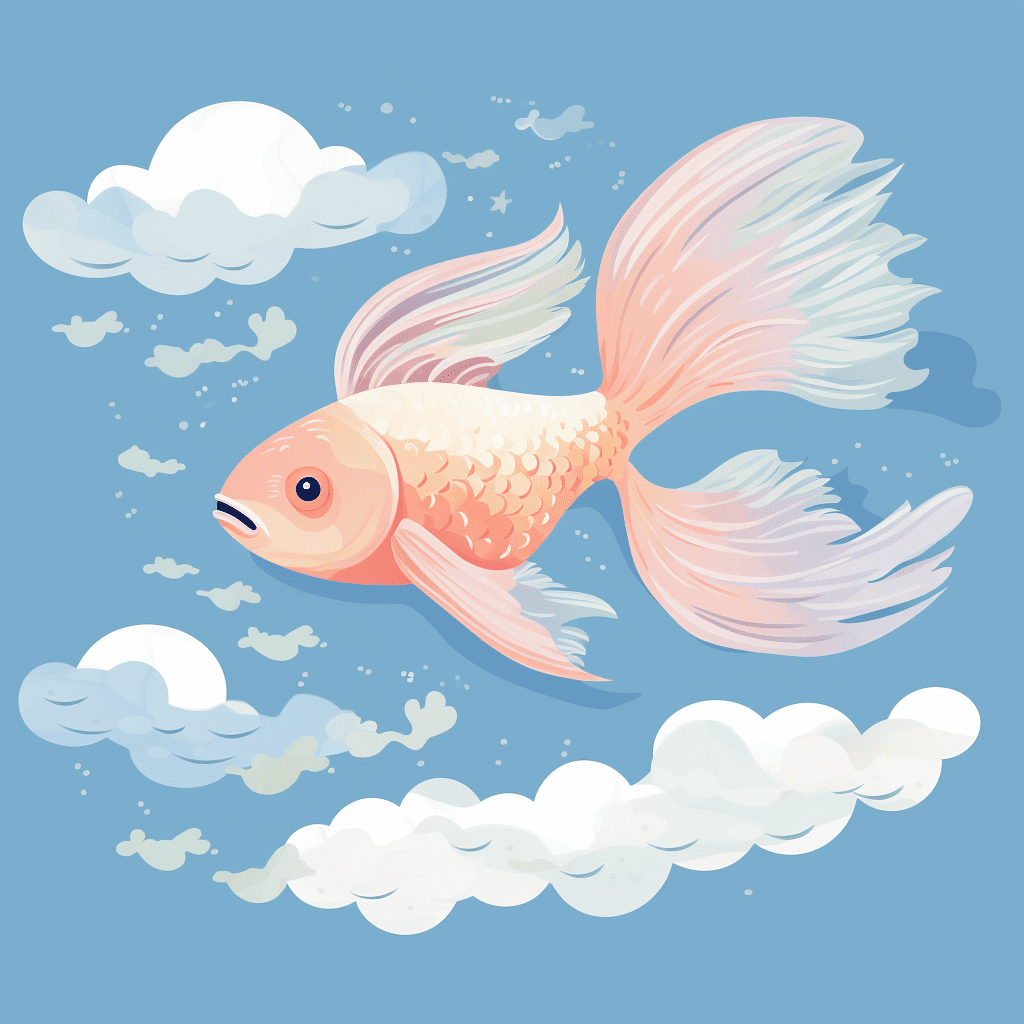Have you ever expected one thing to happen, only for the complete opposite to take place? Maybe you thought it was going to be a sunny day, so you planned a beach trip—only for it to rain cats and dogs.
Or perhaps you've watched a movie where the character thinks they're about to get a wonderful surprise, but it turns out to be anything but. If you've experienced or seen situations like these, then you've encountered what's known as "situational irony."
Situational irony is when the opposite of what you expect to happen occurs, creating a surprising twist. It's like life playing a little joke on us, where our expectations and reality don't match up.
Situational irony is a fascinating twist that life—and art—often throws at us. It makes stories more intriguing, conversations more engaging, and even helps us see the humor in life's little mishaps.
But what exactly is situational irony? Why do we seem to enjoy it so much, and how can you spot it in different parts of your life? In this article, we'll dive deep into the world of situational irony, explore some unforgettable examples, and even look at why our brains are wired to appreciate this curious phenomenon.
What is Irony?

When people think of irony, they often imagine someone saying something but meaning the opposite, like saying "Oh, great!" when something bad happens. But did you know irony comes in different flavors? That's right—irony isn't a one-size-fits-all kind of thing. There are three main types: verbal irony, dramatic irony, and situational irony. Let's break them down.
Verbal Irony
Verbal irony is the kind most people are familiar with. It's when you say something but mean the opposite. For example, if it's pouring rain outside and you say, "What a beautiful day," that's verbal irony. You're using words to express something opposite to their usual meaning, often for emphasis or humor.
Dramatic Irony
Dramatic irony is a bit like being in on a secret that some of the characters in a story don't know. Imagine watching a movie where you know there's a hidden treasure in a room, but the characters are completely unaware.
You might be yelling at the screen, "It's right there! Look behind the painting!" That's dramatic irony—you know something crucial that the characters don't, which makes the situation tense or funny.
Situational Irony
Now, let's get to the star of the show: situational irony. Situational irony happens when the complete opposite of what you expect to happen actually occurs. For example, imagine a fire station burning down. You'd think that of all places, a fire station would be the safest from fire. But life often has other plans, and that's what situational irony is all about.
Situational irony isn't just a literary tool; it pops up in our everyday lives too. It's when you run late for a "Time Management" seminar or when a bird poops on a freshly washed car. It happens when the quiet student in the class turns out to be an amazing public speaker, or when you finally find your lost keys in the last place you'd ever think to look.
In situational irony, there are usually three key elements:
- Expectation: What you think will happen or what usually happens in a similar situation.
- Reality: What actually happens, which is the total opposite of the expectation.
- The "Ah-ha!" Moment: The point where you realize the irony, usually making you chuckle or shake your head in disbelief.
In a nutshell, situational irony is when life doesn't go as planned—in a way that's opposite to what you'd expect, and often in a manner that's amusing or enlightening.
Why Do We Use Irony?
You might be wondering, "Why do we even have irony? What's the point?" Great questions! Irony, including situational irony, isn't just some random thing that happens. It serves several purposes, both in our minds and in society. Let's take a closer look.
Psychological Reasons
- Emotional Distancing or Coping Mechanism: Life is full of surprises, not all of them pleasant. When something opposite to what we expect happens, recognizing the irony can help us cope. It's like saying, "Well, isn't this ironic?" and giving yourself a moment to step back from the situation. This emotional distance can make things easier to handle. It can also be used in a manipulative way, though.
- Making a Point in a Creative or Humorous Way: Irony can be a powerful tool for making your point without being direct. For instance, let's say your friend is always late, and one day they finally arrive on time. You might say, "Wow, look who's on time—a miracle!" The irony helps emphasize your point while also adding humor.
- Encouraging Critical Thinking: Situational irony often makes us stop and think, "Wait a minute, something's not right here." This moment of realization encourages us to think more deeply about situations, challenging our assumptions and expectations.
Social Reasons
- Building Rapport or Showing Cleverness: Irony can be like a secret language or inside joke among friends or people who understand it. Recognizing irony together can build a sense of closeness or rapport. It can also be a way to show off how clever or insightful you are—like saying, "Hey, did you catch that irony?"
- Irony as a Form of Social Commentary: Sometimes irony is used to point out the flaws, absurdities, or contradictions in society. For example, if a sign at a park says "Don't Walk on the Grass" and it's surrounded by a concrete jungle with no greenery, that's ironic. It makes you think about how sometimes rules or systems don't make sense.
- Irony as Comedy: More intentionally, irony can be used as a form of humor. Comedians use it, but so do regular people with their friends, coworkers, or just in general. It's one of many forms of humor.
What About Situational Irony?
Situational irony is especially interesting because it doesn't always need words—it often just happens, in life or in stories. It makes us feel smart when we catch it, and it often brings a smile to our faces or makes us shake our heads in disbelief. In a way, situational irony is like life's way of keeping us on our toes, reminding us that things don't always go as planned, and that's okay.
So, the next time you find yourself in an ironic situation, remember: it's not just a funny coincidence. It's a psychological and social tool that makes life a little more interesting, helps us cope with the unexpected, and sometimes even makes us think a little deeper about the world around us.
Irony vs. Sarcasm: What's the Difference?
You might have heard people use the words "irony" and "sarcasm" interchangeably, as if they mean the same thing. While they are related, they're not the same, and here's why.
Irony
As we've learned, irony comes in different forms—verbal, dramatic, and situational. Irony is essentially a mismatch between expectation and reality. It can happen in conversations, in stories, and even in real life. The key thing is, irony isn't always intended to hurt or mock someone; it can simply be an observation that things didn't turn out as expected.
Sarcasm
Sarcasm, on the other hand, is a form of verbal irony specifically designed to mock or convey contempt. It's like irony with an attitude. For example, if someone says, "Nice job on the presentation," but they really mean that your presentation was terrible, that's sarcasm. The speaker is saying the opposite of what they actually mean, but they're doing it to make a cutting point.
So, What's the Big Difference?
The main difference boils down to intent and tone. Irony is a broader term that describes situations where there's a gap between what's expected and what actually happens. Sarcasm is more specific; it's irony used to mock or hurt someone.
Think of it this way: all squares are rectangles, but not all rectangles are squares. In the same vein, all sarcasm is a form of verbal irony, but not all verbal irony is sarcasm.
So, the next time someone says something and you're not sure if it's ironic or sarcastic, think about the intent and the tone. Is it just pointing out an unexpected twist, or is there a mocking edge to it? That will help you figure out whether you're dealing with irony or stepping into the realm of sarcasm.
Components of Situational Irony

When you spot situational irony, it's like finding a hidden treasure. It can make an ordinary day feel a bit more exciting or make a story or movie way more interesting. But how do you know when something is truly ironic and not just a weird or unexpected event? There are usually three main components that come together to create situational irony. Let's explore each one.
1) Expectation vs. Reality
First off, situational irony starts with an expectation—a thought or belief about what should happen based on common sense, past experiences, or even cultural norms. For example, if you have a pet cat, you expect it to land on its feet when it jumps because that's what cats usually do.
Reality, in the case of situational irony, loves to turn your expectations upside down. Using the cat example, let's say your agile feline jumps but somehow lands clumsily on its side. That's where you get that "What just happened?" moment.
2) Unintended Consequences
The second component is all about outcomes that you don't see coming. These are called "unintended consequences."
For example, let's say you spent hours cleaning your room to impress your parents, but when they walk in, they're too distracted arguing about their own day to notice. You cleaned up expecting praise, but the result was entirely different—a classic unintended consequence.
3) The "Ah-ha!" Moment
Lastly, there's the "Ah-ha!" moment—the point when you realize that something ironic has happened. This is often the most fun part of situational irony. You might laugh, face-palm, or just shake your head in disbelief. The "Ah-ha!" moment is when the irony becomes crystal clear.
Let's say you're watching a cooking show, and the chef keeps bragging about never burning food. Then, guess what? The chef burns the dish on live TV. The moment you see the smoke rising and the chef's surprised face, that's your "Ah-ha!" moment. You realize the irony, and it makes the experience more memorable and engaging.
Putting It All Together
When you combine expectation vs. reality, unintended consequences, and the "Ah-ha!" moment, you get the full package of situational irony. Being aware of these components can make it easier to spot irony in your daily life and appreciate it when it shows up in stories or movies. It's like having a special lens that lets you see the world in a more interesting, nuanced way.
So the next time something doesn't go as planned, instead of getting frustrated, try to spot the irony. It might just make the situation a little easier to handle—and a lot more interesting!
Situational Irony Examples
The Fire Station That Caught Fire: In most towns, fire stations are the last place you'd expect to catch fire. But in a quirky twist, a fire station did catch fire.
Missing a "Time Management" Seminar for Being Late: Imagine signing up for a time management seminar to improve your punctuality, only to miss it because you're late.
Romeo and Juliet: In Shakespeare's famous play, Romeo believes Juliet is dead and takes his own life. Moments later, Juliet wakes up, finds Romeo dead, and takes her own life too.
The Gift of the Magi: In this short story by O. Henry, a husband and wife sell their most prized possessions to buy gifts for each other.
The "Titanic": The Titanic was advertised as an "unsinkable" ship, but it famously sank on its maiden voyage.
Alanis Morissette's Song "Ironic": The song talks about ironic situations, but many of the examples in the song aren't actually examples of irony.
A Traffic Cop Gets a Parking Ticket: Imagine a traffic cop, someone who gives out parking tickets, getting a parking ticket themselves.
Rain on Your Wedding Day After a Month of Drought: You've heard for weeks that there's a drought, but it starts to rain on your outdoor wedding day.
A Lifeguard Who Can't Swim: Imagine finding out that the lifeguard at your local pool can't actually swim well.
Animal Farm by George Orwell: The pigs in "Animal Farm" promise equality but end up being just as corrupt as the humans.
Lord of the Flies by William Golding: A group of boys stranded on an island try to govern themselves but end up becoming savages.
"The Truman Show" Movie: Truman lives what he thinks is a normal life but finds out everything is a TV show.
Breaking Bad's Walter White: A chemistry teacher turns to making illegal drugs to secure his family’s future after learning he has cancer.
The Unsinkable Ship (again): The Vasa, a 17th-century Swedish warship, was expected to be mighty but sank on its maiden voyage just like the Titanic.
Prohibition Leads to More Drinking: In the 1920s, the U.S. enacted Prohibition to reduce drinking but it led to the opposite.
The Gym Instructor Who Dislikes Exercise: Imagine going to a fitness class and discovering that your instructor dislikes exercise.
The Vegetarian Who Accidentally Eats Meat: A lifelong vegetarian accidentally eats a dish containing meat.
The Doctor Who's Afraid of Blood: Imagine a physician who can't stand the sight of blood, making their daily job a challenge.
The Teacher Who Hates Kids: A person becomes a teacher, a profession centered around children, but turns out to actually dislike kids.
The Hairdresser with Bad Hair: A hairstylist known for giving amazing haircuts has noticeably bad hair themselves.

The Dentist with Bad Teeth: Someone who is an expert in dental care has bad teeth.
The Firefighter Who’s Afraid of Fire: A person joins the fire department but is terrified of fire.
The Pilot Afraid of Heights: A commercial airline pilot has a fear of heights.
"1984" by George Orwell: In the dystopian novel, the Ministry of Love tortures people, and the Ministry of Truth spreads lies.
The Dog That’s Afraid of Cats: Typically, cats are afraid of dogs, but in this situation, the dog is terrified of cats.
The Lifelong Sailor Who Gets Seasick: A person who’s been a sailor all their life suddenly starts getting seasick.
The Detective Who Couldn't Solve His Own Mystery: A detective famous for solving crimes becomes a suspect in his own mystery.
The Rich Man Who Feels Empty: A wealthy man with everything he could wish for feels emotionally and spiritually empty.
The Environmentalist Who Litters: Someone deeply involved in environmental causes is caught littering.
The Singer Who Lip-Syncs: A well-known singer is discovered to be lip-syncing during live performances.
The Marriage Counselor Getting Divorced: A marriage counselor known for successfully counseling couples is going through a divorce.
The Tech Expert Who Can't Operate a Smartphone: Someone who’s an expert in technology struggles with basic functions on a smartphone.
The Safety Instructor Who Has an Accident: An instructor who teaches safety measures has an accident due to not following safety protocols.
The Chef Who Can't Cook an Egg: A renowned chef struggles with cooking a basic dish like an egg.
The Book About How to Read: An author writes a book on learning how to read, but you have to know how to read to understand it.
The Fitness Blogger Who Eats Junk Food: A health and fitness blogger secretly has a diet full of junk food.
The Travel Writer Afraid to Fly: A writer known for travel blogs and books is actually terrified of flying.
The Librarian Who Doesn't Read: A librarian who has never had an interest in reading.
The Zookeeper Scared of Animals: A person responsible for caring for animals in a zoo is afraid of most animals.
The Plumber with Leaky Faucets at Home: A professional plumber has plumbing issues in his own home.
The Motivational Speaker with Low Self-Esteem: A speaker who motivates people for a living secretly battles low self-esteem.
The Comedian Who's Depressed: A person who makes people laugh for a living struggles with depression.
The Weather Forecaster Who Forgot an Umbrella: A weather forecaster predicts rain but forgets to bring an umbrella.
The Artist Who Can't Draw a Stick Figure: A celebrated abstract artist who can't even draw a basic stick figure.
The Local Food Advocate Who Eats Fast Food: An advocate for local and organic food is regularly seen eating fast food.
The Policeman Who Gets Robbed: A policeman's house gets broken into and robbed.
The Social Media Expert Who Hates Technology: An expert in social media marketing secretly despises technology.
The Psychiatrist Who Needs Therapy: A mental health professional realizes they need therapy themselves.
The Romance Novelist Going Through a Breakup: A novelist known for romance novels is going through a heart-wrenching breakup.
The Quiet Politician: A politician known for their strong speeches turns out to be an introvert who doesn't like speaking in public.
The Barber Going Bald: A professional barber starts to lose all his hair.
The Lifeguard Who's Afraid of Water: A lifeguard who's secretly scared of deep water.
The Vegan Who Owns a Steakhouse: A committed vegan becomes the owner of a steakhouse.
The Smartphone Designer Who Uses a Flip Phone: The designer behind cutting-edge smartphones uses a basic flip phone.
The Soldier Afraid of Loud Noises: A person signs up for the army but is terrified of loud noises like explosions.
The Historian Who Forgets Important Dates: A historian consistently forgets significant dates related to their field.
The Writing Instructor Who Dislikes Writing: A teacher of creative writing has a strong aversion to the act of writing.
The Animal Rights Activist Who Wears Leather: An activist for animal rights is spotted wearing a leather jacket.
The Fortune Teller Who Didn’t See It Coming: A fortune teller gets surprised by an unexpected event they didn't predict.

The "Never Late" Person Missing a Flight: A person known for never being late misses an important flight.
The Dietician Who Loves Soda: A dietician advocating for healthy eating is addicted to sugary soda.
The Singer Who Hates Music: A professional singer who has never enjoyed listening to music.
The Caffeine-Free Coffee Shop Owner: The owner of a popular coffee shop doesn't consume caffeine.
The Allergic Florist: A florist discovers they're allergic to flowers.
The Claustrophobic Elevator Operator: An elevator operator who's claustrophobic and dislikes small spaces.
The Screenwriter Who Doesn't Watch Movies: A screenwriter who has never enjoyed watching movies.
The Smartphone Manufacturer Who Advocates Digital Detox: A manufacturer of popular smartphones campaigns for less screen time.
The Music Teacher Who Is Tone-Deaf: A music teacher who can't discern different musical notes due to tone-deafness.
The Swimming Coach Who Can’t Float: A swimming coach has difficulty with floating in the water.
The Environmentalist Who Drives a Gas Guzzler: An outspoken environmentalist drives a car with very poor fuel efficiency.
Conclusion
Situational irony is a fascinating aspect of life, storytelling, and human behavior. It shows us that life can often be unpredictable, throwing us curveballs when we least expect it. Whether it's the fire station catching fire or the vegetarian accidentally eating meat, these examples serve as a reminder that life is full of surprises that can challenge our expectations.
Understanding situational irony also enriches our experiences of literature, movies, and even our daily interactions. It adds depth to stories and sometimes injects humor or tragedy into situations, making them more memorable and engaging.
So the next time you find yourself in an ironic situation, don't just roll your eyes. Take a moment to appreciate the complexity and unpredictability that makes life so interesting. After all, isn't it ironic?
And that wraps up our deep dive into the world of situational irony! Whether you're a student trying to understand this literary device or an adult who enjoys the complexities of life, we hope you found this journey both enlightening and entertaining.



